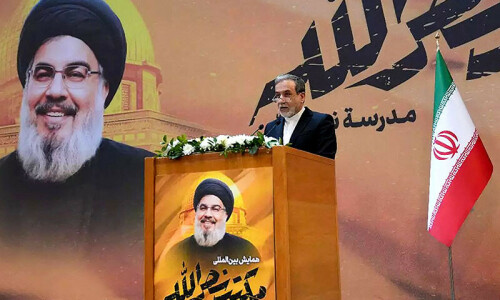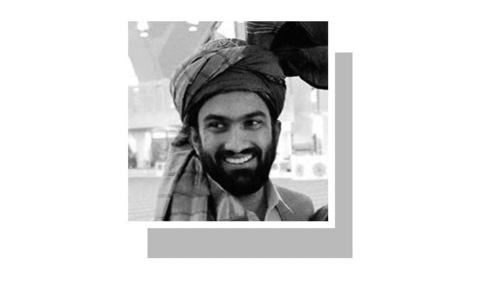ISLAMABAD, Oct 18: Adviser to the Prime Minister on Finance Shaukat Tareen unveiled a plan on Saturday to line up $4 billion with a short-term financial lifeline to bridge the deficit in balance of payments and build foreign exchange reserves.
“I am very confident that we can do whatever it takes to build our foreign exchange reserves and avoid default,” Mr Tareen told journalists after addressing a press conference.
Mr Tareen attended the Word Bank-IMF meetings in Washington recently and visited Beijing with President Asif Ali Zardari to drum up support for averting any balance of payments crisis.
He said that Pakistan needed around $4 billion for bridging the gap in balance of payments during the current fiscal year. He said his plan would be finalised in four to five weeks after consultation with all stakeholders. “We will be in a sound position in the next 30 to 60 days,” he asserted.
He said “plan A” aimed at bridging the gap in balance of payments, mainly through multilateral lenders (the Word Bank and Asian Development Bank) and frontloading disbursements from development assistance programmes in the current fiscal year.
The PM’s adviser said the Islamic Development Bank and Britain’s Department for International Development were also expected to virtually double their planned assistance.
The World Bank will provide $1.5 billion and the ADB $1.6 billion. Five hundred million pounds would come from DFID, $500 million from the IDB and $1.5 billion from workers remittances bonds.
“This is in excess of our needs and does not include assistance from the ‘Friends of Pakistan’ forum,” he said.
Mr Tareen said that under “plan B”, the government was expecting the required assistance from ‘Friends of Pakistan’ to balance its budget deficit. “China and Saudi Arabia are likely to make huge commitments at the ‘Friends of Pakistan’ meeting in Abu Dhabi next month.”
He said under “plan C”, Pakistan would seek assistance from the International Monetary Fund. “We can go to the IMF if we want, but only as a backup,” Mr Tareen said, adding that he was confident Pakistan had a viable plan to surmount its problems.
“If the IMF approves our plan, then we will go for it. We are not getting additional conditionality. If they approve our plan, we can always talk. Pakistan cannot wait for a long time,” he replied to a questioner.
“We need action to induce money into the economy over the next one month. Otherwise, we have to see option C to curtail the decline in reserves,” he said. “The plan has been presented to international financial institutions to bail out the country from current economic woes.”
He said donors were informed that the government had compounded people’s misery by increasing electricity tariffs and oil prices. “We urged them to come forward to help the six-month old democratic government,” he said.
Mr Tareen gave an upbeat account of his meetings with finance ministers of various countries and heads of international financial institutions, emphasising that only the next 12 to 24 months were problematic for Pakistan.
He said at the end of this period, macro-economic indictors – inflation and fiscal deficit -- would improve and expenditure would be reduced. Tax and non-tax revenue would be increased from 10.5 per cent to 15 per cent within five years, he added.
POVERTY: Talking about poverty alleviation, the adviser said poor families would be given vocational training to help them come out of poverty. He said medical insurance ranging between Rs15,000 and Rs20,000 per year would be given to the poor. More working facilities would be created at the union council level to create employment opportunities, he added.
Mr Tareen said the rupee had been overvalued for the past two to three years. The overvaluation inflicted heavy losses to local industries. “It has increased cost of doing business, while consumers opted for cheaper imports.”
“We need a flexible and realistic exchange rate. It does not mean that the rupee would regain its value at 60 against the dollar, but it would be realistic.”“We have to show flexibility in the currency to discourage imports. The economists are working on it.”
The adviser said agriculture growth had been declining for the past few years. He said the government was planning to augment water resources, implement food processing facilities, improve marketing and credit availability.
Mr Tareen said the government had decided to establish a trust to consolidate sick industries. After consolidation, these units should go into the hands of efficient people. “We need export diversification. We will give incentives to encourage value-addition.”
He said the government was planning to develop an integrated energy plan that would not only include electricity and gas, but also coal-based energy.
He said more reforms would be introduced in the banking sector and the stock market would be integrated with the mainstream economy.










































Dear visitor, the comments section is undergoing an overhaul and will return soon.